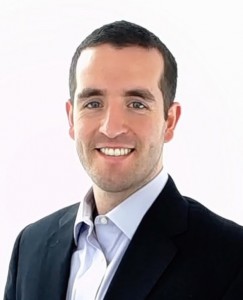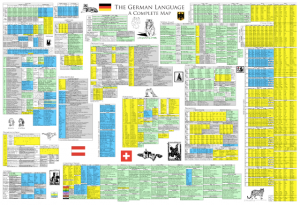
Aaron Ralby, ’05, is a former English major here at UMBC. Below, he reflects on his time with the English Department and how he has used that experience for continued growth:
It’s hard to believe it’s been eleven years since completing my undergraduate degree at UMBC. I double majored in English and MLL, focusing on German; those two disciplines melted together, informing everything I have done since.
Medieval literature was always my favorite, and as I learned more about the history of the English language in linguistics classes, I became fascinated in the shared linguistic and literary history of the Germanic languages. Starting with Old English while still at UMBC, my studies then took me to Old Norse and Latin while reading for an MPhil in the department of Anglo-Saxon, Norse, and Celtic at Cambridge University. From there, I continued delving into Germanic languages and literature at Cornell, completing my PhD in medieval studies. My thesis was a comparative study of heroic literature across Old English, Old Norse, and Middle High German.
Each language led to another, and after my PhD, I found myself in Iceland working on improving my command of modern Icelandic. Then I traveled to Saxony, Germany, where I’d studied abroad as an undergrad at UMBC; this time, my sights were set on learning Plattdeutsch, a dialect of Low German very close to Old English. As I immersed myself in these languages, I found something was lacking in my own facility and training – I did not have a system for approaching a new language cold. In other words, I didn’t know what I didn’t know.
I began formulating a system for myself, mapping out all the problems of communication that languages solve. This system evolved into Linguisticator, my current business, which began more than five years ago. The first few years were largely spent researching and developing methodologies and resources. In 2013, I was contracted by the United Kingdom’s Ministry of Defence to develop an English language training program for use in North Africa, specifically Libya. The resulting program, ELT Tiger, was trialed successfully in Tripoli with the Libyan military from the autumn of 2013 to the winter of 2014. It was a harrowing few months running the trial – protests, gas shortages, power outages, floods, kidnappings, militia fighting, and lots of guns. I’ll always remember that time in Tripoli fondly, though, because of the warmth of the Libyans who became my friends. Also, the trial was a great success.
Click the map for a closer look at one of the language maps that Linguisticator had produced.
Since the summer of 2014, Linguisticator has put out programs for Spanish, French, Italian, German, and Arabic, as well as courses in Memory and Time Management. It’s been a busy couple of years developing and refining all the courses, but we’re now in a position where we can quickly guide a complete beginner step-by-step through the process of building a memory palace to master all the complexities of a new language’s grammar.
We’re also now collaborating with the Autism Research Centre at Cambridge University to produce tools for nonverbal children with autism to learn how to speak. Our resources on memory have received very positive feedback, so we are expanding our work in memory techniques into areas beyond just language acquisition.
My joint interests and double major at UMBC have now fully fused into a career I did not even consider possible a decade ago. I have not become an English professor as many of my mentors had perhaps expected, but I’m sure they will recognize my current profession as a direct extension of the training I began at UMBC.
This spotlight was originally published on March 22, 2016.
